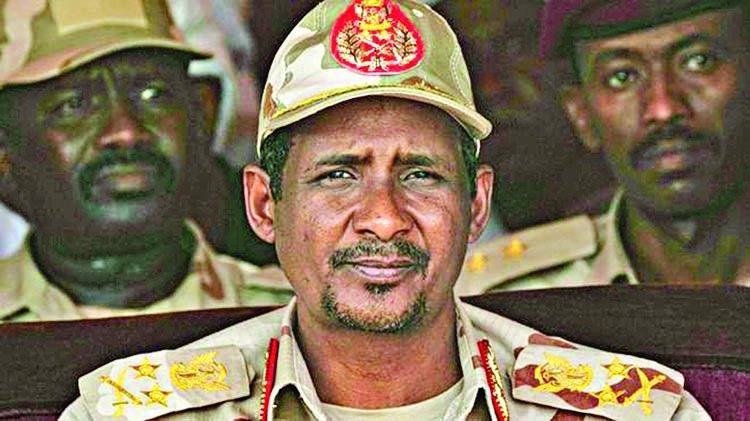Sudan army, civilians seal landmark deal

Sudan's ruling military council and the main opposition on Saturday signed a final agreement for a transitional government that aims to set the country on a new course after nearly 30 years of authoritarian rule.
The agreement was signed in the presence of regional and international dignitaries including Ethiopian Prime Minister Abiy Ahmed and South Sudanese President Salva Kiir, reports The National.
The deal, known as the Constitutional Declaration, was agreed earlier this month after weeks of tense negotiations and a deadly security forces crackdown on civilian protesters. It will establish a joint military and civilian council to rule for a little over three years until elections can be held. It will also establish a cabinet appointed by the activists and a legislative body
The agreement between the Transitional Military Council and the Forces for Freedom and Change defines the 39-month transition to full civilian rule. But the road to democracy remains fraught with obstacles, even if the mood was celebratory as foreign dignitaries as well as thousands of citizens from all over Sudan converged for the occasion
The deal brought an end to nearly eight months of upheaval that saw masses mobilize against president Omar Al Bashir, who was ousted by the military in April after 30 years in power. The agreement brokered by the African Union and Ethiopia was welcomed by both sides; protesters celebrated what they see as the victory of their "revolution", while the generals took credit for averting civil war.
In the town of Atbara the birthplace of the protests back in December people on Friday night danced and sang at the train station as they prepared to travel to Khartoum, videos shared on social media showed.
"Civilian rule, civilian rule," they chanted, promising to avenge the estimated 250 allegedly killed by security forces during the protests. With Saturday's official signing, Sudan kicked off a process that includes important first steps. The composition of the transitional civilian-majority ruling council is to be announced on Sunday.
On Thursday, protest leaders agreed to nominate former senior UN official Abdalla Hamdok, a veteran economist, as prime minister. He is expected to focus on attempting to stabilise Sudan's economy, which went into a tailspin when the oil-rich south seceded in 2011 and was the focus of the initial protests.
But many Sudanese are already questioning the ability of the transitional institutions to rein in the military elite's powers during the three-year period leading to planned elections. The country of 40 million people will be ruled by an 11-member sovereign council and a government, which will be dominated by civilians.
However, the interior and defense ministers are to be chosen by military members of the council. "Political dynamics will matter more than pieces of paper," Rosalind Marsden from London's Chatham House think tank, told Agency France-Presse.
"The biggest challenge facing the government will be dismantling the Islamist deep state ... which took control of all state institutions and key sectors of the economy, including hundreds of businesses owned by the military-security apparatus."
One of the most immediate diplomatic consequences of the compromise reached this month could be the lifting of a suspension slapped on Sudan by the African Union in June.
Lieutenant General Mohammed Ali Ibrahim, a senior member of the Transitional Military Council, said on Friday that the official signing would "reopen the door for Sudan's foreign relations".
Some within the protest camp are sceptical of the compromise deal, which they say did not do enough to curb the powers of the military or guarantee justice for those killed by security forces.Absent from Saturday's ceremony are also the various rebel groups from marginalised regions such as Darfur, Blue Nile and Southern Kordofan.
The Sudan Revolutionary Front that unites these insurgents has supported the protest movement but rejected the constitutional declaration, demanding representation in the government and more guarantees on peace talks.
